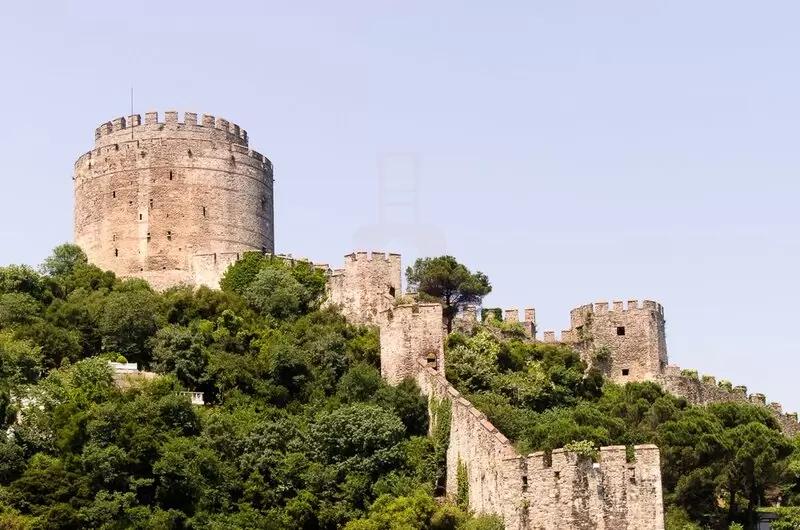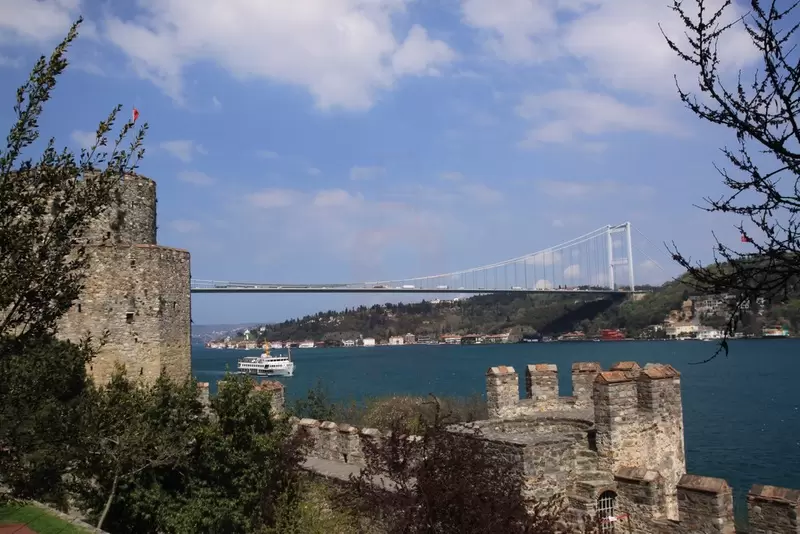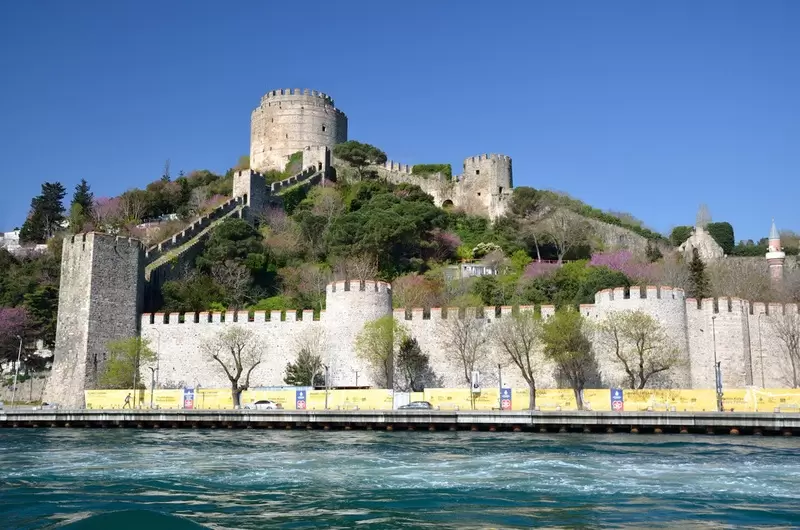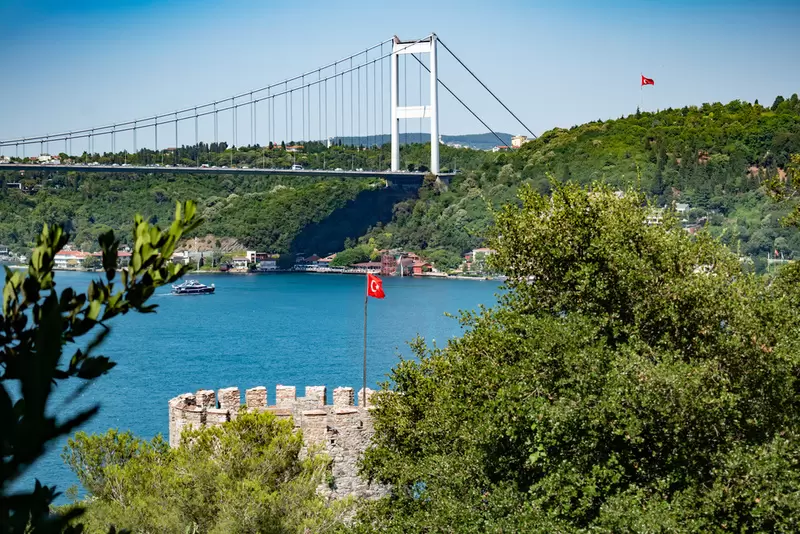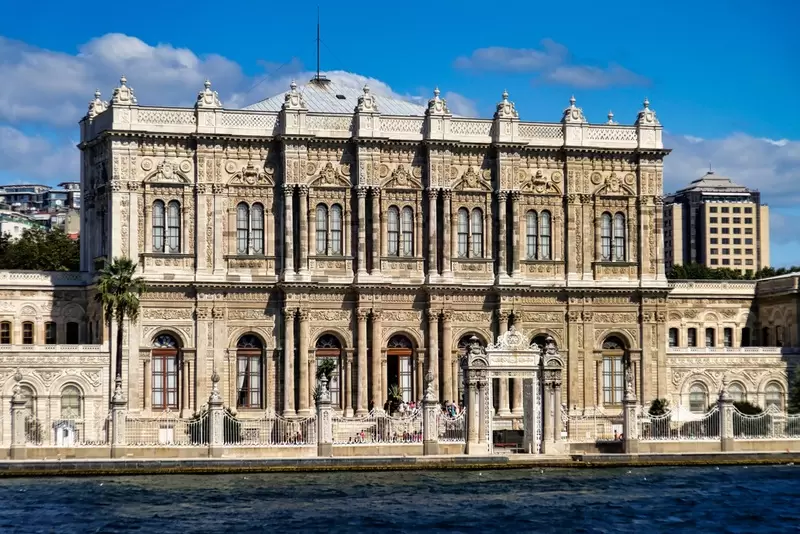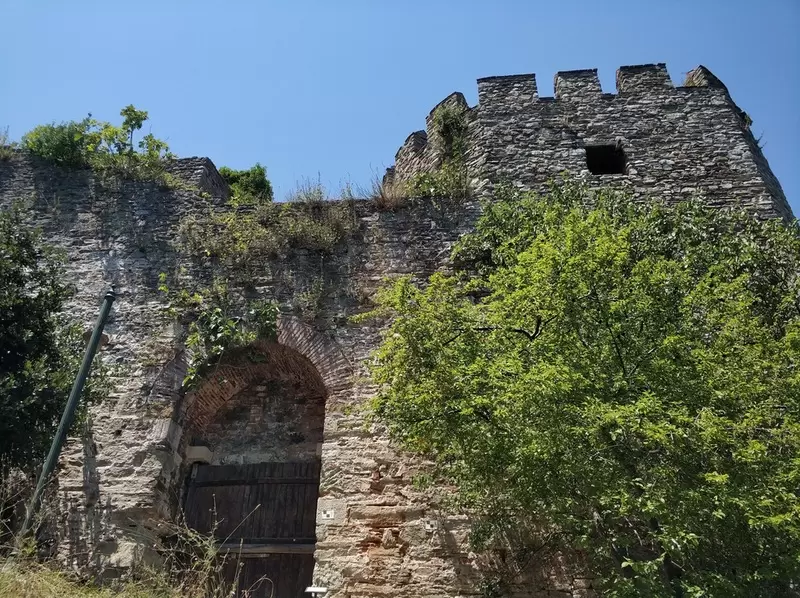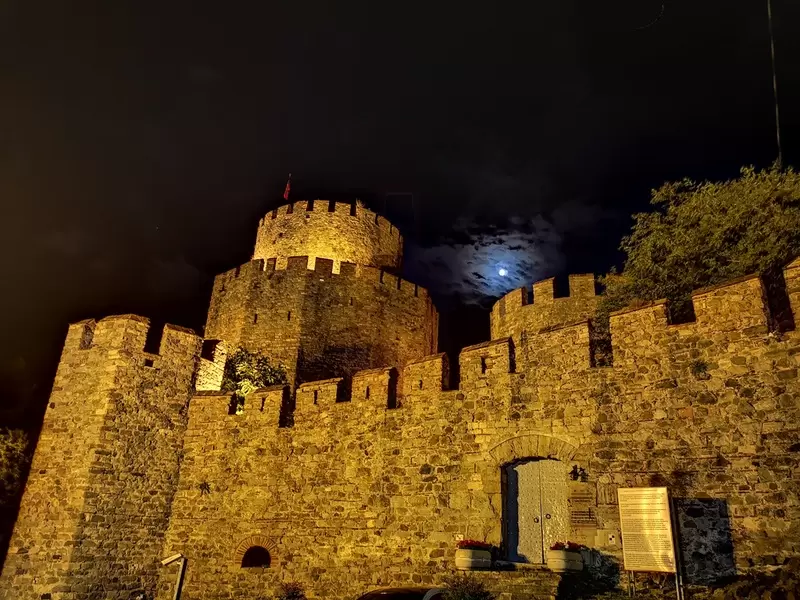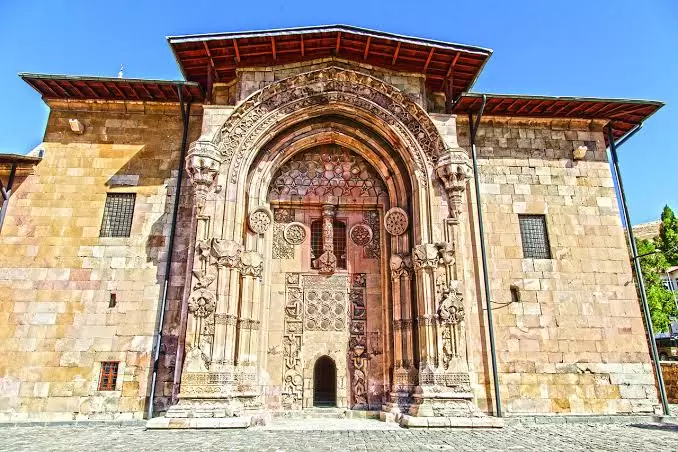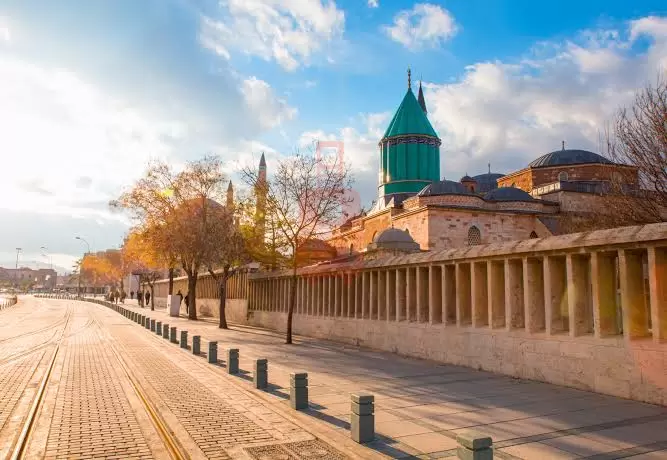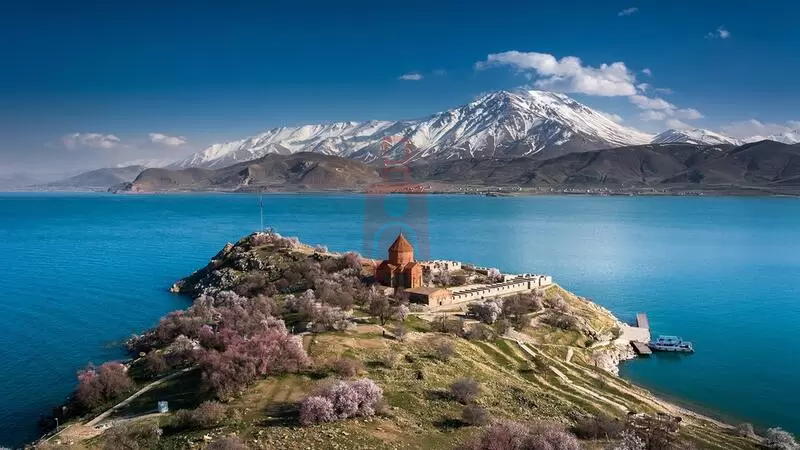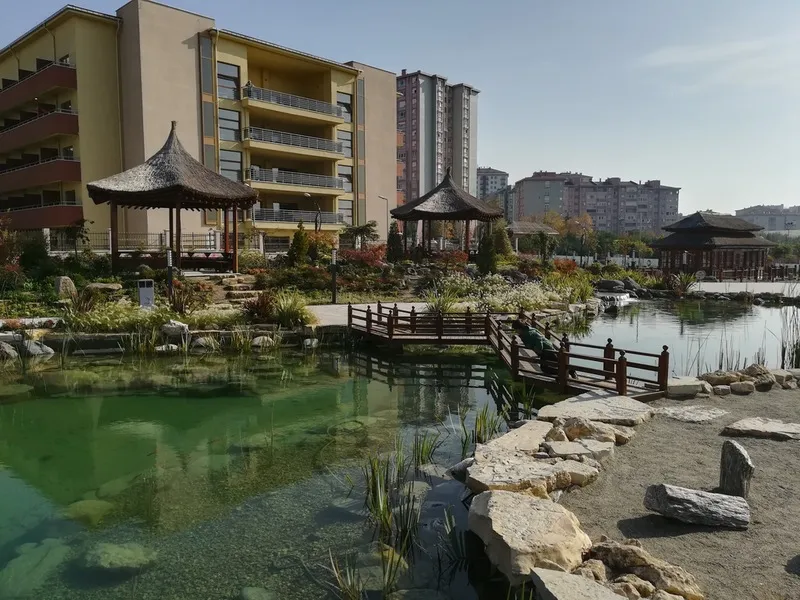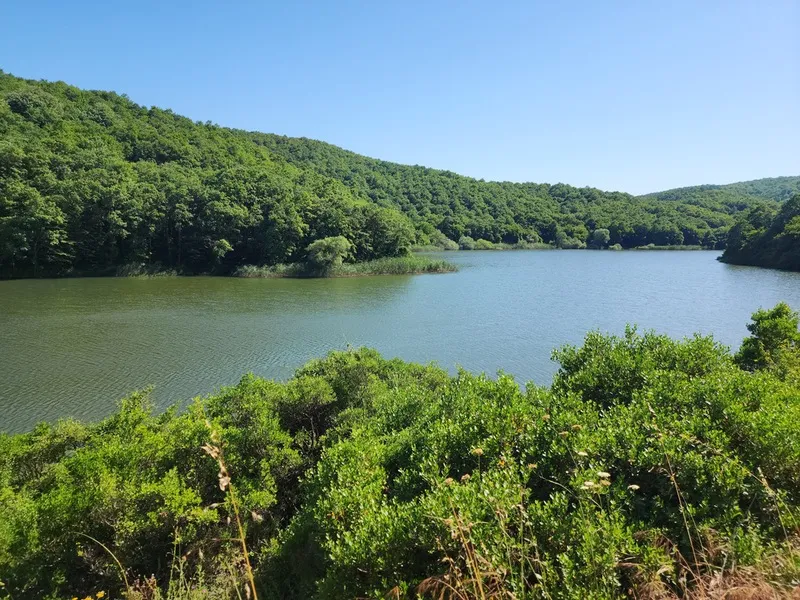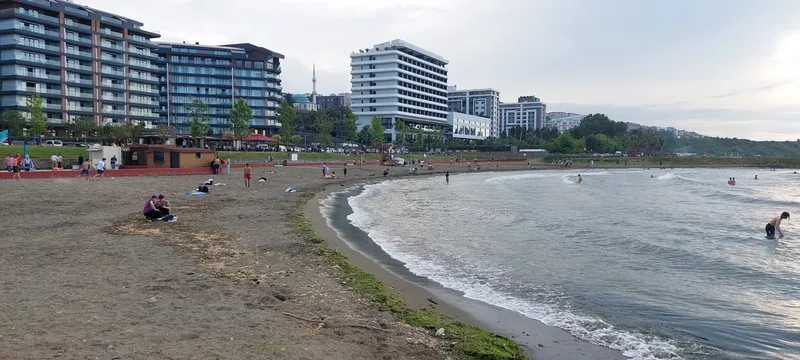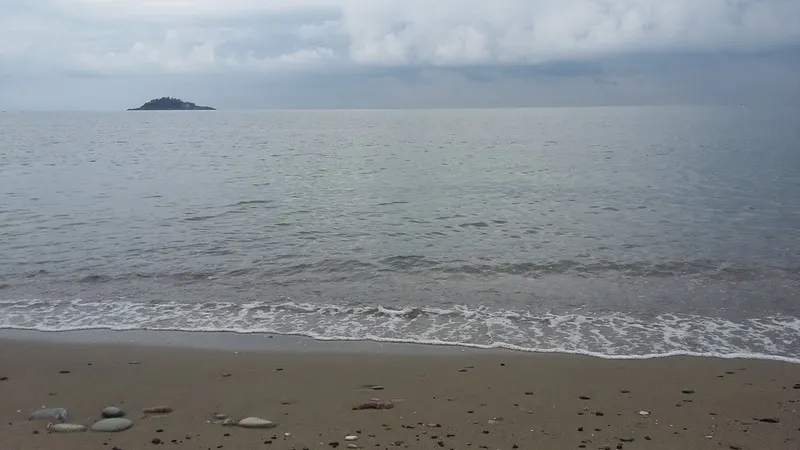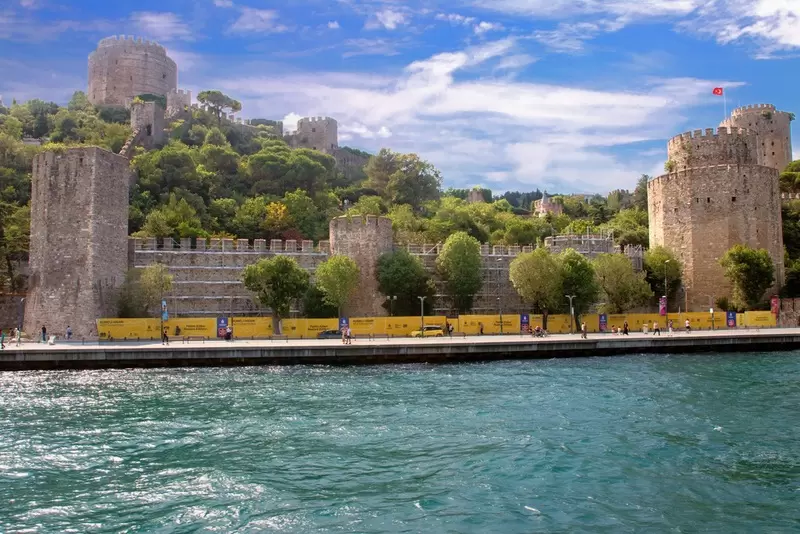
Rumelihisarı (Turkish: Rumelihisarı) is a fortress on the European side of the Bosphorus in Istanbul, Turkey. It was built by the Ottoman sultan Mehmed the Conqueror in 1452 to protect the city from attacks by the Byzantines. The fortress consists of two walls, one on the landward side and one on the seaward side. The landward wall is 1,800 meters long and has 13 towers. The seaward wall is 1,600 meters long and has 16 towers. The fortress is open to the public, and is one of the most popular tourist attractions in Istanbul.
1. Location: Rumelihisarı is situated on the European side of Istanbul, along the Bosphorus Strait. It is located in the Sarıyer district, between the neighborhoods of Bebek and Baltalimanı. The fortress occupies a strategic position, overlooking the Bosphorus and controlling the narrowest point of the strait.
2. Historical Significance: Rumelihisarı holds great historical significance and is closely associated with the Ottoman Empire. It was built by Sultan Mehmed II, also known as Mehmed the Conqueror, in preparation for the siege of Constantinople (present-day Istanbul) in the 15th century.
3. Construction: The construction of Rumelihisarı took place between 1451 and 1452, shortly before the Ottoman Empire's successful conquest of Constantinople in 1453. The fortress was strategically positioned to control maritime traffic along the Bosphorus and prevent aid from reaching the city during the siege.
4. Architectural Features: Rumelihisarı is a massive fortress with imposing stone walls and towers. It is designed in a triangular shape, following the contours of the hill it was built upon. The fortress consists of three main towers, named the Halil Pasha Tower, Saruca Pasha Tower, and Zaganos Pasha Tower.
5. Defensive System: Rumelihisarı was constructed with a robust defensive system, including thick walls, battlements, and strategically placed towers. It was equipped with cannons and other artillery, providing the Ottomans with a significant advantage during the siege of Constantinople.
6. Inner Courtyard: The fortress features an inner courtyard that was used for military purposes. It provided space for soldiers, storage, and other essential facilities during the time of its active military use.
7. Preservation and Tourism: Today, Rumelihisarı is open to the public as a historical site and museum. Visitors can explore the fortress and its surrounding grounds, enjoying panoramic views of the Bosphorus and the city. The museum provides historical information and exhibits about the fortress, its construction, and its role in Ottoman history.
8. Events and Activities: Rumelihisarı occasionally hosts cultural events, exhibitions, concerts, and festivals. These events aim to promote cultural exchange and celebrate the historical significance of the fortress.
Visiting Rumelihisarı offers a glimpse into the military architecture of the Ottoman Empire and the strategic importance of the Bosphorus. It is a popular destination for history enthusiasts, architecture lovers, and those seeking picturesque views of Istanbul and the Bosphorus Strait.
